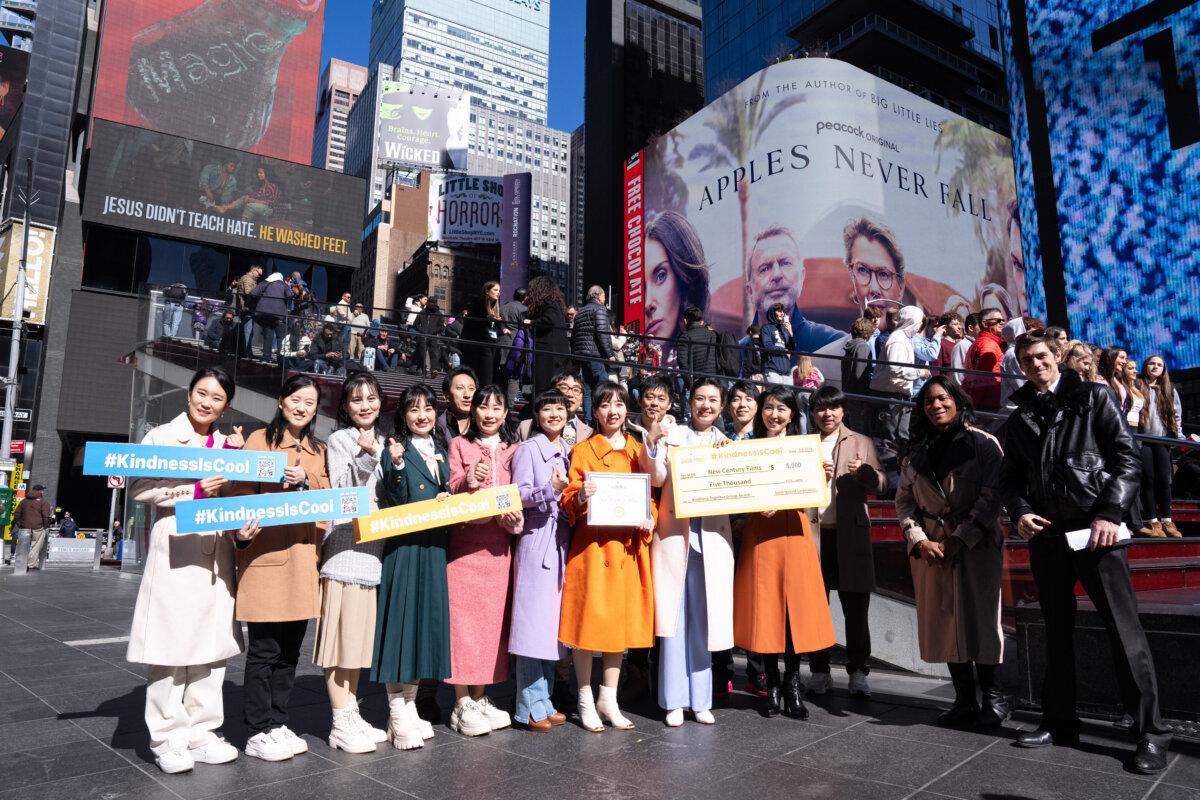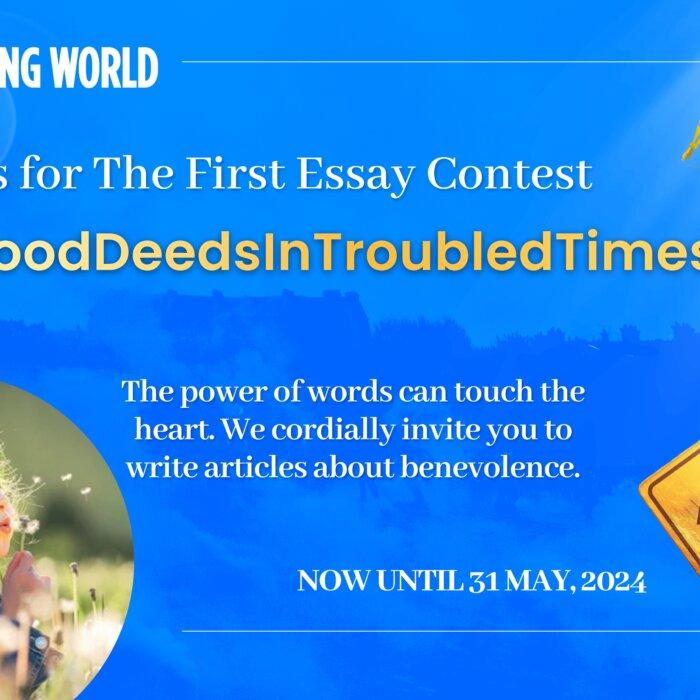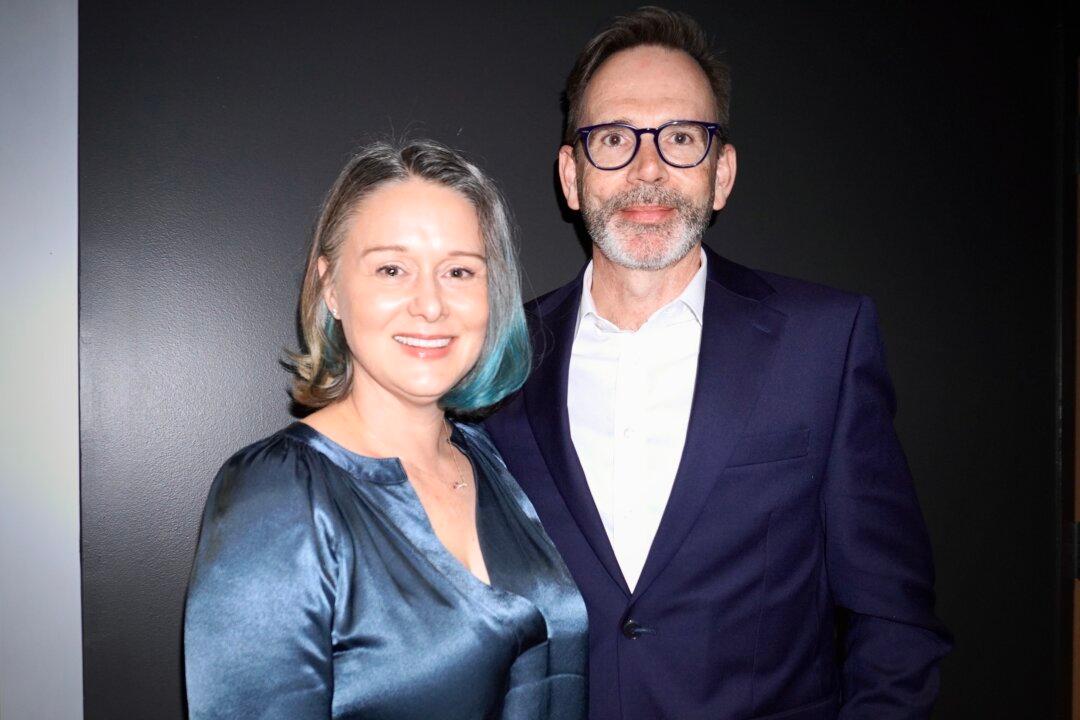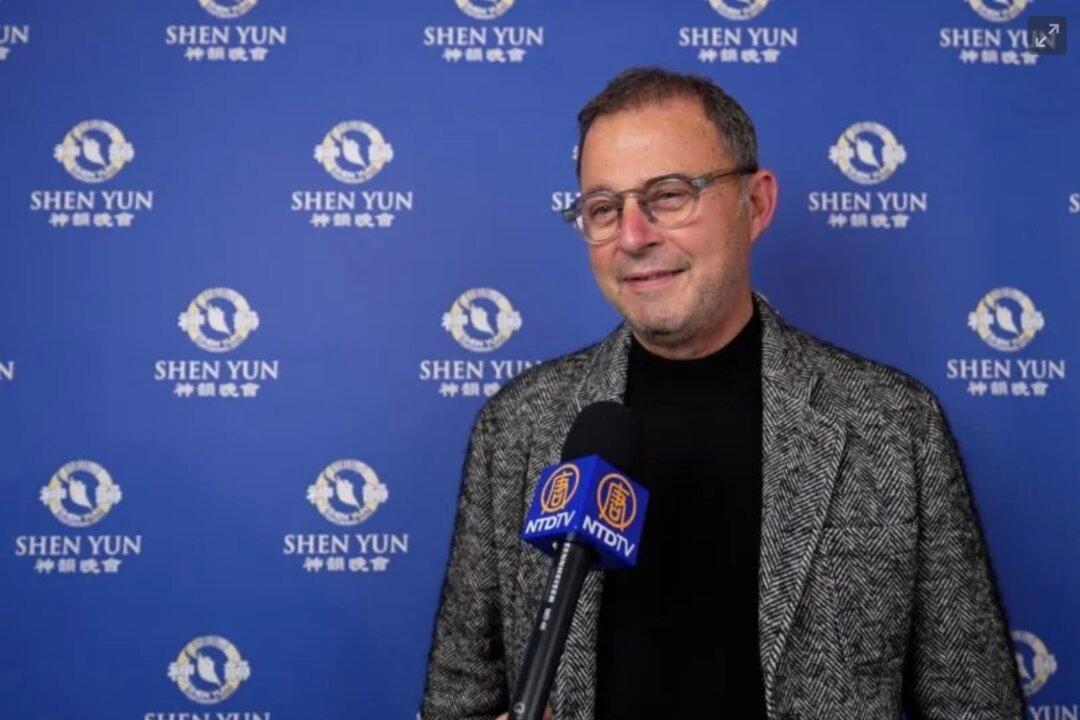The electronic billboards of Times Square on March 8 played some of the 10,000 videos about kindness that were submitted to the “Kindness is Cool” event hosted by new, clean-tech company Gan Jing World.
Entries for the video competition poured in from all around the world, and 14-year-old Samuel Coggin took home the first prize with a $10,000 award.
“I created a video for the Adaptive Training Foundation for Kindness is Cool,” said Samuel, who attended the “Kindness is Cool” video awards ceremony with his family. “David Vobora was previously in the NFL and now he made a gym for amputees.”
Samuel said he planned to use his $10,000 to build a film company to tell the stories of senior citizens.

Leyanna Stevenson, a center director in Manhattan for the Department of Veteran’s Affairs, was proud to present Samuel his award.
“Kindness is almost like a lost art,” she said. “I think if we just have that in the forefront, and see an organization that is highlighting the kindness of other people and their work and their films, I think that makes a huge impact.”
Other winners of the “Kindness Is Cool” video awards present at the award ceremony include New Century Films and students of Boston’s Star Academy for the Gifted and Talented.

Students of the Star Academy for the Gifted and Talented shared with NTD what kindness means to them.
“Suffering is an illness ... and the medicine for it is kindness,” said a student from the school.
Another student said, “We’re here all because of kindness. And everybody in class has shown us kindness and I think everybody in the world should be a bit kinder. There will be no jails and no wars.”
“I think kindness is like glue. And it really just keeps this world in one, one singular,” said another student.

Kindness Changes People
Samuel’s winning video can be viewed on Gan Jing World here.Former NFL linebacker David Vobora is the founder of the Adaptive Training Foundation (ATF). More than a gym, the center houses, feeds, and trains the amputees to “redefine their lives through new tools, new habits, and new community” through a free, nine-week program and offers employment to graduates of the program.
Mr. Vobora said kindness was instilled in him through the actions of his parents early on.
“When I was a kid, we used to go to church, and on the way to church, in our old van, we would pick up homeless people with disabilities,” he said.
It wasn’t always something he enjoyed.
“I remember being maybe 8 or 9 years old, and after church we had to go to a carwash and clean off the seats because one of those people had an accident. And I remember cleaning the seat and looking at my mom and saying like, ’this sucks, why, why did we do this?'”
His mother’s response stuck with him.
“She said, ‘compassion is never convenient. It always interrupts. The opportunity to be kind when you’re interrupted shows that you’re human, that you can be humane to humanity,’” he recounted.
He said at 8, this was a profound realization.
“It’s about being willing to recognize the humanity in someone else, even if their skin color is different, even if their backgrounds different, even if you have nothing on paper in common,” he said. “There’s a lot more similarities and differences if we can be kind to each other.”
Mr. Vobora had his own lesson to share from running the ATF.
“The victim mentality doesn’t do anything for anyone. To me, the only disability truly is a fixed mindset. If you have a growth mindset and aren’t looking for reasons why it’s not your fault, if you’re willing to just own whatever it is and step into that ownership with truth and honesty, then you have the opportunity to change the narrative that you feel like you’re suffering from,” he said.
“And it’s only when we stop hitting people and having sympathy that we can realize that they can actually step into their actual calling. That’s why we believe in people until they can believe in themselves,” he said.
He added that what they do may not look like kindness, because sometimes kindness is tough love.
“Sometimes it’s ‘hey, look, you came here for a reason; don’t balk at this opportunity to step over that line into uncertainty and grow,’” he explained.
But kindness is at the core of what they do at ATF, he added, and it’s a two-way street. One has to feel responsible to lend out kindness without expectation of it from other people, he explained.
“I think as you do deal hope as you do deal, kindness then there’s this sort of equalizer, there’s this energy that comes out and that attraction, the law of attraction actually brings more back into your life,” he said.






